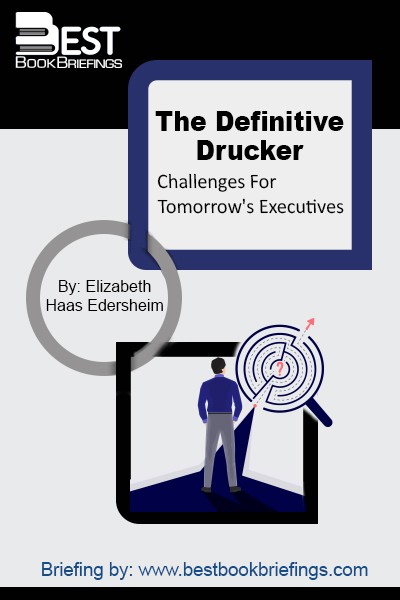The Definitive Drucker
Challenges For Tomorrow's Executives
Number of pages: 289
Publisher: McGraw-Hill Education
BBB Library: Operations Management
ISBN: 9780071472333
Editorial Review
Management guru Peter Drucker widely regarded as the father of modern management. During his remarkable life and career, he inspired countless business and political leaders. Drucker's key business tents include: Serve the customer: The purpose of a business is to create and serve a customer. Act, don't just talk: Management takes hard work, sweat and practice. Plans are only good intentions unless they immediately degenerate into hard work. Ask the right questions: Drucker made complex matters simple by asking probing questions to drill down to the essential issues. Bring the outside in: Corporations tend to be insular and self-involved. The leader has a duty to make certain that people inside the company focus on the outside world, where the customers and competitors are. Focus on people: Drucker treated others with respect, and he lived the clich´e that people are a business's most crucial asset. He wrote: management is about human beings. Its task is to make people capable of joint performance, to make their strengths effective and their weaknesses irrelevant. Results are what matter: Drucker's favorite expressions included, don't confuse motion with progress.
Book Reviews
Books on Related Topics
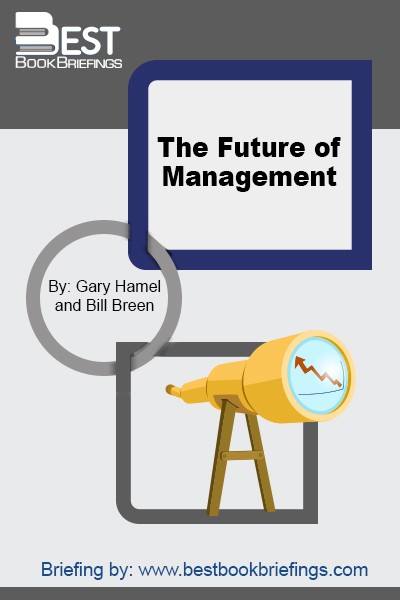
In The Future of Management, Gary Hamel argues that organizations need management innovation now more than ever. Why? The management paradigm of the last century—centered on control and efficiency—no longer suffices in a world where adaptability and creativity drive business success. To thrive in the future, companies must reinvent management.

When an organization's culture is bad, don't just blame the managers. Happiness in an organization is everyone's responsibility. Better management means engaging people, improving the whole system, and increasing value for clients. Thus, management is too important to leave to the managers. I firmly believe that management is everyone's job. At

A half century ago, Peter Drucker put management on the map. Leadership has since pushed it off the map. We are now inundated with stories about the grand successes and even grander failures of the great leaders. But we have yet to come to grips with the simple realities of being
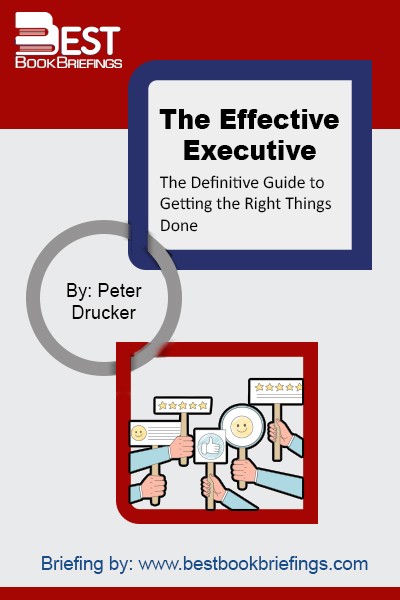
The manual worker had only economic goals and was content with economic rewards. The knowledge worker demands economic rewards too. But their presence is not enough. They need opportunity, they need achievement, and they need fulfillment. Only by being an effective executive can the knowledge worker obtain these satisfactions. Only executive
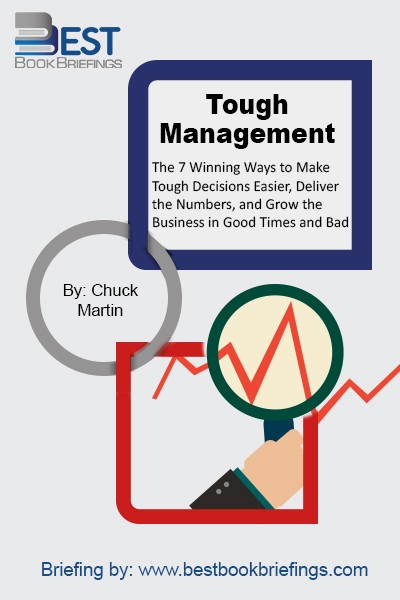
To say that work has changed over the last years would be an understatement. With an increase in downsizing, cut budgets, working hours, customer demands and shareholder requirements, people in charge are constantly under the gun to achieve more with less. It is common now to find managers carrying out a

Containing twenty-six selections, The Essential Drucker covers the basic principles and concerns of management and its problems, challenges, and opportunities, giving managers, executives, and professionals the tools to perform the tasks that the economy and society of tomorrow will demand of them.
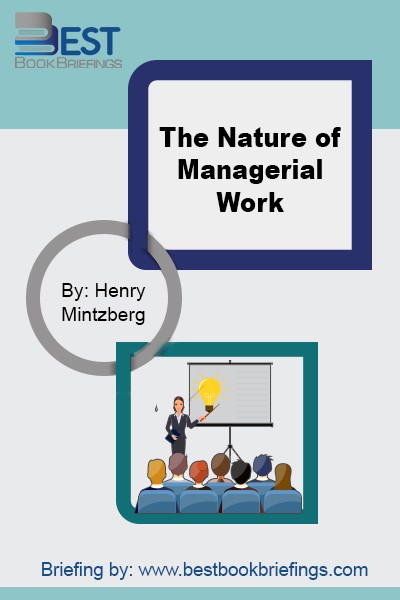
The quantity of work to be done, or that the manager chooses to do, during the day is substantial and the pace is unrelenting. Why do managers adopt this pace and workload? One major reason is the inherently open-ended nature of the job. The manager must always keep going, never sure

